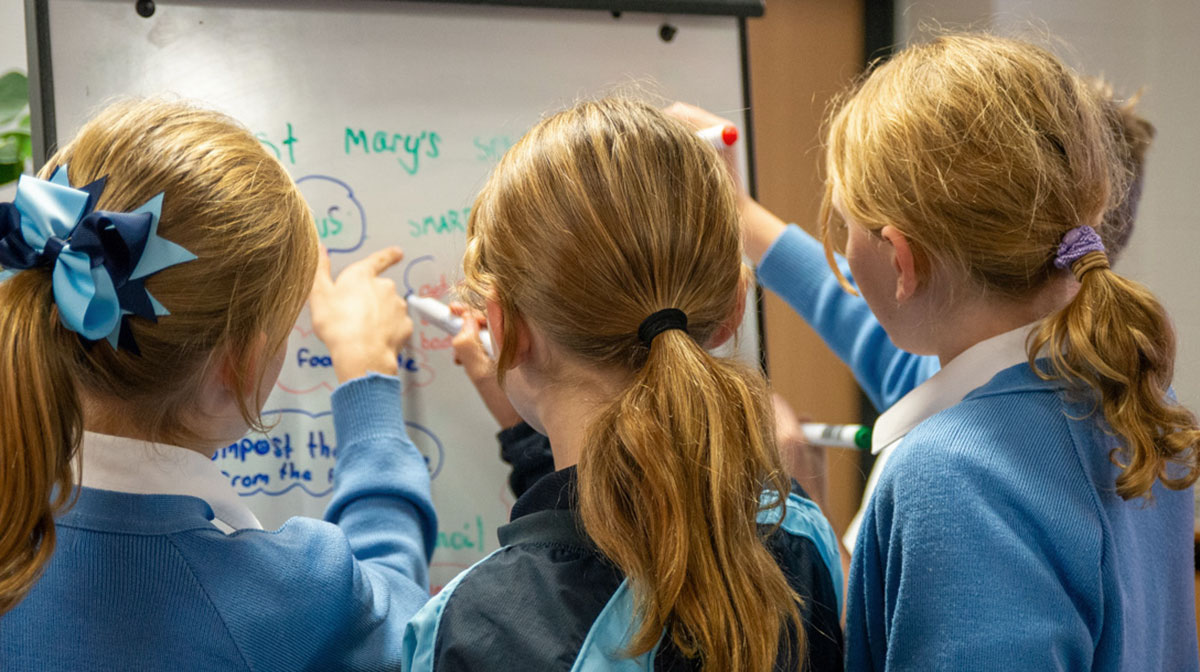The Future’s Green for Henley’s Schools

It’s worth noting after the recent floods that the government sees such catastrophes as a direct threat to something that is at the heart of our communities: it estimates that roughly half of England’s schools are at risk of future flooding. This is one of the reasons that the Department of Education is requiring schools to have climate and nature action plans in place by next year.
Many schools are unprepared for this, with some not even being aware of the requirement. Greener Henley decided to tackle this issue, and at the end of 2023, with guidance from climate and public engagement experts from the University of Reading, we organised a multi-school event at which students and teachers worked on building their green action plans.
The event brought in some 60 students and 30 teachers, including five head teachers, from 17 secondary, primary, and nursery schools in and around the Henley area.
Inspirational ideas from students and teachers
We were inspired by the collaborative and supportive atmosphere, as schools shared best practice and explored possibilities for future local collaborations. Students, in particular, were bursting with enthusiasm and ideas that they wanted to take back to their schools. The students from St Mary’s School Henley (pictured above) decided to go back and set up their own eco-committee.
We have now reported on the findings from the event, which include informal commitments made by participating schools, such as Shiplake College creating a no-idling zone around the school, Badgemore Primary School committing to go plastic free, and Gillotts School conducting an energy audit. We have also issued schools with written guidance on how they can start to build their climate and nature action plans.
It’s early days, but there was general acknowledgement that schools were not prepared for floods or climate change. Findings from the teacher workshop suggested that there were large gaps in areas such as sustainable energy, eco-friendly procurement, and green skills and careers (see box, below).
We understand that pulling together these plans is a big ask for schools, as they battle to emerge from COVID and struggle with funding cuts. This is why we are producing our Greener Henley Schools Action Network Toolkit for schools, where they can find guidance on how to go about building and implementing their climate and nature action plan by 2025.
We are stronger when we collaborate!
Findings from Teacher Workshop
- 1. Curriculum – Climate change/nature being addressed to some extent, but more could be done.
- 2. Decarbonisation – General feeling that school building energy efficiency was low – with one teacher describing as “awful”. Thoughts on reducing energy consumption included installation of wind turbine and solar panels. Ideas included ‘walk to work week’, scooter storage, and reward initiatives for parents. In one school sustainable travel is “an expectation”.
- 3. Biodiversity – One teacher mentioned their school surveys what biodiversity is present. We recommend that schools map biodiversity in accordance with the National Education Nature Park). There was mention of students testing water quality/citizen science. A number of schools increased biodiversity with bat/bird boxes and hedgehog homes, and had opportunities for learning in nature.
- 4. Adaptation and planning – Teachers felt that schools were not prepared for the possibility of flooding (0/10), nor for the possibility of extreme heat. One teacher asked if schools should lobby for investment on proper adaptation measures.
- 5. Green skills and careers – Teachers not confident about their ability to provide up-to-date career advice about jobs in the green economy, nor about preparing students for working in it. Suggestions included having local ‘green’ businesses come in to speak to students.
- 6. Materials, products, consumption – Some mentions that sustainable procurement practices not a priority over budgets and service – it is expensive and time-consuming. A large number of schools, however, are encouraging the reuse and recycling of school uniform. Only one mention of meat reduction.


